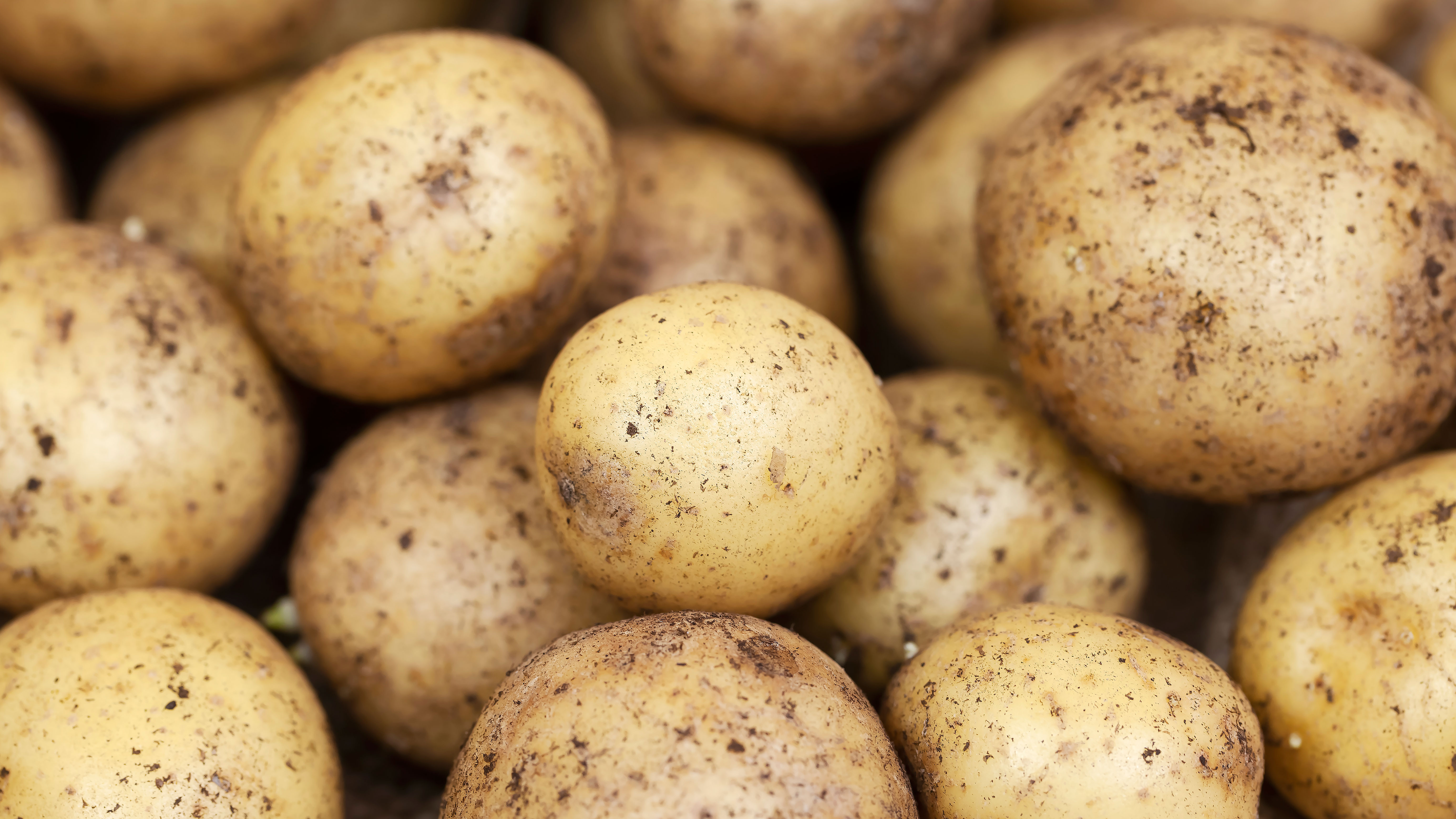How to store potatoes: keep your spuds fresher for longer
Cupboard or fridge? Discover how to store potatoes so that they stay fresher for longer


Want to know how to store potatoes to keep them fresh for longer? If you're tired of discovering rotten, or sprouting, potatoes only a few days since they were purchased, or want to know once and for all whether potatoes belong in the fridge or the cupboard, you've come to the right place. We'll deliver definitive answers on how to store potatoes and help you reduce food waste in the process.
For more cooking and food storage advice, as well as recipe inspiration, head over to our food hub page.
How to store potatoes
You will need:
- A ventilated box for storage
- A dark cupboard
Directions:
1. Begin by taking a good look at your potatoes. Remove any that are sprouting, have any breaks in their skin, or appear to be going mouldy. Depending on their condition, they don't necessarily need to be thrown away, but you should aim to use them as soon as possible to reduce food waste.
2. Next, you'll need to loose any plastic packaging you may have purchased your potatoes in.
3. Potatoes are best stored in a dark place, with plenty of ventilation. So, we'd recommend picking up, or repurposing, a suitable container with plenty of ventilation – see below for examples – and placing all of your 'healthy' potatoes inside.
Get small space home decor ideas, celeb inspiration, DIY tips and more, straight to your inbox!
4. Find a cool , dark spot to store your potatoes. We'd recommend a kitchen cupboard that maintains an average temperature of 10 to 15 degrees. Place inside, accessing as and when required. Don't worry too much about the sell by date on the packaging, potatoes tend to last much longer than supermarkets advertise.
Top tip: if you've picked your potatoes yourself (go you!) it's a good idea to store your potatoes in layers, with a single sheet of newspaper between each.
Can you store potatoes in the fridge?
Uncooked potatoes are best stored in a cool, dark space, as recommended above. This is particularly important if you're looking to keep them fresher for longer.
When stored in a fridge, research suggests that a particular enzyme found in potatoes breaks down the sugar sucrose into glucose and fructose. When cooked, this can cause the formation of the organic compound acrylamide. While evidence is inconclusive – and we wouldn't encourage you to panic too much – there is some suggestion that acrylamide can cause adverse health effects.
How to store peeled potatoes
Potato peel hack
Looking to reduce your food waste? Rather than binning your potato peelings, bake them in the oven for five to ten minutes with a drizzle of olive oil, salt, pepper and a little garlic and paprika to prepare some tasty crisps. Same goes for sweet potato peel and the tough outer layer of a squash.
Want to get ahead on the food prep? If you're working full time, or want to be able to socialise as much as possible when hosting a dinner party, it pays to pre-peel your potatoes.
Once peeled, we'd recommend submerging your potatoes in a bowl of cool water for up to 24 hours. This will help keep them fresh, and prevent them from going brown in the lead up to cooking.
Can you freeze potatoes?
Want to prolong the life of your potatoes even more? It's possible to freeze roasted, mashed or even boiled potatoes. Discover the bets way to do so in our guide to freezing potatoes.
Read more:
Emily first (temporarily) joined the Real Homes team while interning on her summer break from university. After graduating, she worked on several publications before joining Real Homes as Staff Writer full time in mid-2018. She left the brand in 2020 to pursue another career, but still loves a second-hand bargain and sourcing unique finds to make her rented flat reflect her personality.
